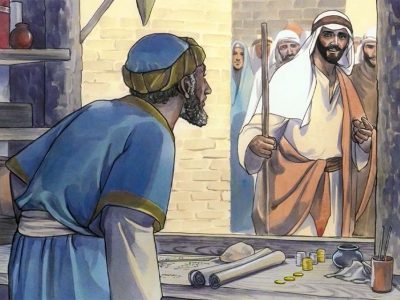Psalm 126
Thessalonians 5:16-24
John 1:6-8, 19-28
Dear Friends,
This is the Sunday when many traditional churches light a “rose” colored candle on the Advent wreath, signifying the theme of joy that occurs in the readings.
Isaiah 61 proclaims the good news of deliverance to a people in exile, as the ashes of mourning are replaced with gladness and praise when the Lord displays his glory. “I will greatly rejoice in the Lord, my whole being shall exult in my God.”
John’s Gospel opens with the great cosmic perspective of Jesus, who is declared to be the Word that was in the beginning with God, creating all things, the Light that enlightens all people. In today’s reading John the Baptist testifies to the coming of this Light among us in the one who is coming (Jesus).
Paul writes to the church in Thessalonica to “Rejoice always, pray without ceasing, give thanks in all circumstances” as we await “the coming of our Lord Jesus Christ.” His expectation was that this second and final coming of the Lord would happen literally within his own time.
Comment: Advent combines many themes – particularly the theme of watchful waiting and the anticipation of great joy. How blessed we are that The Word of God who has always been with God has indeed come among us in the flesh and blood of Jesus! We recall every Eucharist how he said, “take and eat, this is my body….take and drink, this is my blood shed for the forgiveness of sins.” We rejoice, even while waiting in the darkness of this world, because we are illumined by the very Light of God with and within us. The Lord HAS displayed His glory, and so we dare to exult in our God.
David S. Robinson, Rector








